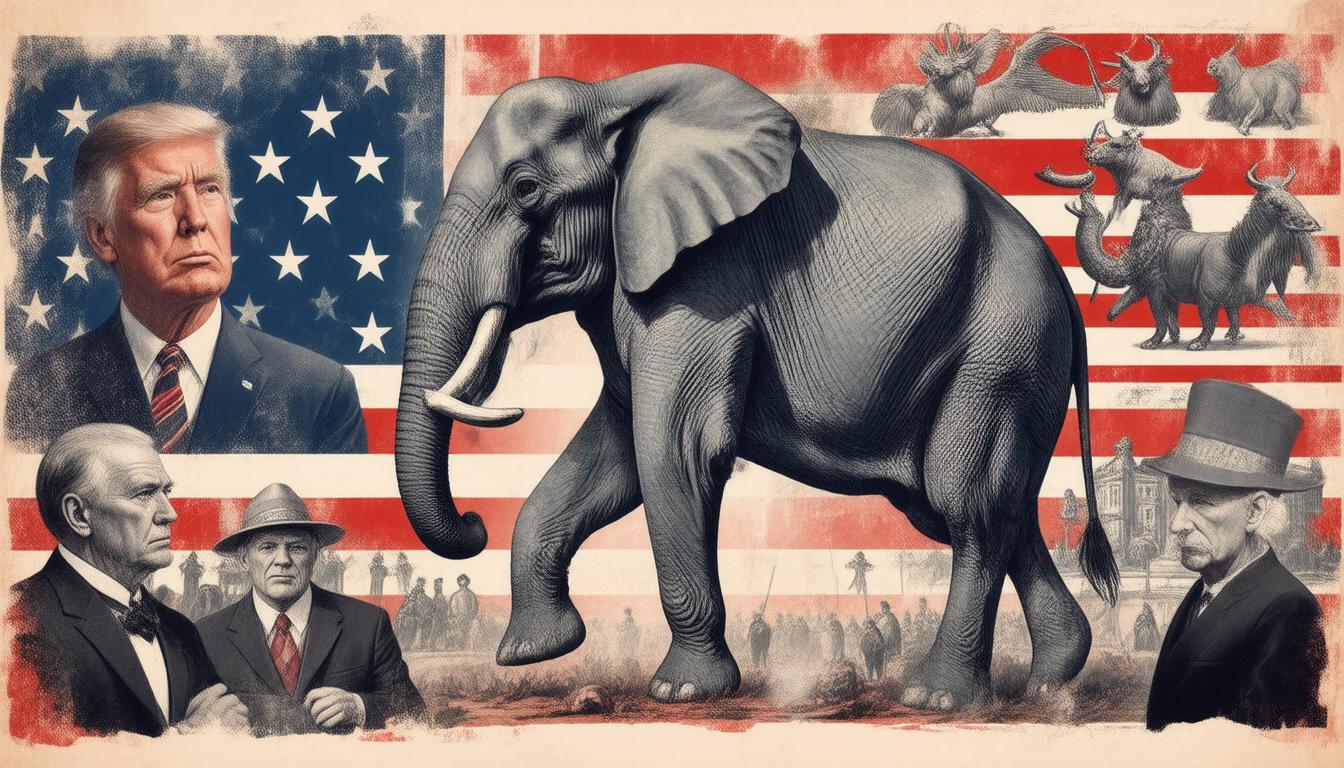The Republican Party, a major political force in the United States, has a rich historical tapestry woven with ideologies, influential figures, and evolving directions. From its inception in the mid-19th century to its role in contemporary American politics, understanding the complexities of the Republican Party is crucial for anyone interested in the political landscape. This article will explore the historical origins of the Republican Party, delve into its core ideologies and values, highlight influential figures who shaped its journey, discuss current challenges, and contemplate its potential future. Join us as we unpack the significance of the Republican Party in the ongoing American political discourse.
Key Takeaways
- The Republican Party was founded in the mid-19th century as an anti-slavery political movement.
- Core ideologies of the Republican Party include conservatism, fiscal responsibility, and individual liberty.
- Influential figures such as Abraham Lincoln and Ronald Reagan have shaped the party’s identity over the years.
- Current challenges for the Republican Party include addressing internal divisions and external political opposition.
- Future directions for the party may include a shift towards new demographics and adapting to changing societal values.
Historical Origins of the Republican Party
The Republican Party, one of the two major political parties in the United States, has a rich historical origin that dates back to the 1850s. It was founded in response to the growing tensions between the North and South over issues such as slavery and economic policy. Emerging from anti-slavery ideologies and the desire for a more unified nation, the Republican Party’s first official meeting took place in 1854 in Michigan. Key figures, including former Whigs, Free Soilers, and anti-slavery Democrats, came together to form a party that prioritized liberty, equality, and the principles of republicanism. The party quickly gained traction, especially in the Northern states, advocating for the containment of slavery and promoting new economic opportunities. Abraham Lincoln’s election in 1860 marked a significant milestone for the Republican Party, as he became the first Republican president, leading the nation through the Civil War and working towards the abolition of slavery. Today, the Republican Party continues to play a vital role in American politics, maintaining its commitment to individual freedoms and reform while adapting to the evolving political landscape.
Core Ideologies and Values of the Republican Party
The Republican Party, one of the two major political parties in the United States, is rooted in several core ideologies and values that resonate deeply with its supporters. Founded in the 1850s, the Republican Party advocates for principles such as limited government, individual liberties, and free-market economics. A fundamental belief of the party is that a smaller government is more efficient in fostering economic growth and innovation. Republicans also prioritize personal responsibility and the empowerment of individuals to make their own choices, particularly in areas like education and healthcare. Additionally, the Republican Party emphasizes the importance of traditional values, often aligning these with a strong national defense and patriotic fervor. As the party evolves, it continues to champion policies that promote fiscal conservatism, tax reductions, and deregulation, aiming to create a thriving capitalist environment. With a commitment to preserving the Constitution and protecting citizens’ rights, the Republican Party invites those who share its vision to engage in the political process and work towards a prosperous future.
‘The Republican Party has stood for a set of principles that are as old as the Republic itself: liberty, opportunity, and a chance for all people to succeed.’ — Condoleezza Rice
Influential Figures in Republican History
The Republican Party has been shaped by numerous influential figures throughout its history, each leaving a profound impact on its ideology and future direction. One of the most notable early leaders was Abraham Lincoln, whose leadership during the Civil War and commitment to abolishing slavery established the party as a force for civil rights and national unity. Fast forward to the 20th century, and figures like Ronald Reagan redefined the Republican Party’s principles by advocating for free enterprise, limited government, and a strong national defense, which resonated deeply during the challenging economic times of the 1980s. More recently, leaders such as George W. Bush and Donald Trump have also molded the party’s identity, addressing contemporary issues such as terrorism and immigration. Their influence showcases the Republican Party’s ability to evolve while maintaining its core values, adapting to the changing political landscape and the diverse needs of the American populace. As we look to the future, understanding these influential figures provides insight into the foundational beliefs that continue to shape the Republican Party.
Current Challenges Facing the Republican Party
In today’s dynamic political landscape, the Republican Party faces several challenges that test its cohesion and electoral strategy. One major challenge is the need to appeal to a diverse electorate while maintaining its core values. As demographic shifts occur across the United States, the Republican Party recognizes the importance of reaching out to minority groups and young voters who are crucial for future elections. Additionally, the party grapples with internal divisions between traditional conservatives and more populist factions, which can complicate unified messaging. Another significant issue is addressing pressing topics such as climate change and economic inequality, where public sentiment is increasingly calling for action. By navigating these challenges effectively, the Republican Party can continue to thrive and resonate with the American populace, thus securing its place in the political conversation for years to come.
Future Directions and Potential Transformations of the Republican Party
As the political landscape continues to evolve, the Republican Party is poised for significant transformations that could reshape its direction and appeal to a broader audience. In recent years, we’ve witnessed a growing emphasis on inclusivity and a diversified messaging strategy that aims to attract younger voters, minorities, and those disillusioned with traditional party politics. This effort for rejuvenation can be seen in their outreach programs and a commitment to addressing pressing issues like climate change and economic inequality, which resonate with a wider array of constituents. Furthermore, the party is embracing technology and social media to enhance engagement and communication, allowing for a more interactive dialogue with the electorate. As the Republican Party moves forward, its potential for reinvention offers promising opportunities to establish a more progressive platform while retaining core conservative values, ensuring that it remains a powerful force in American politics.



















Leave a Reply